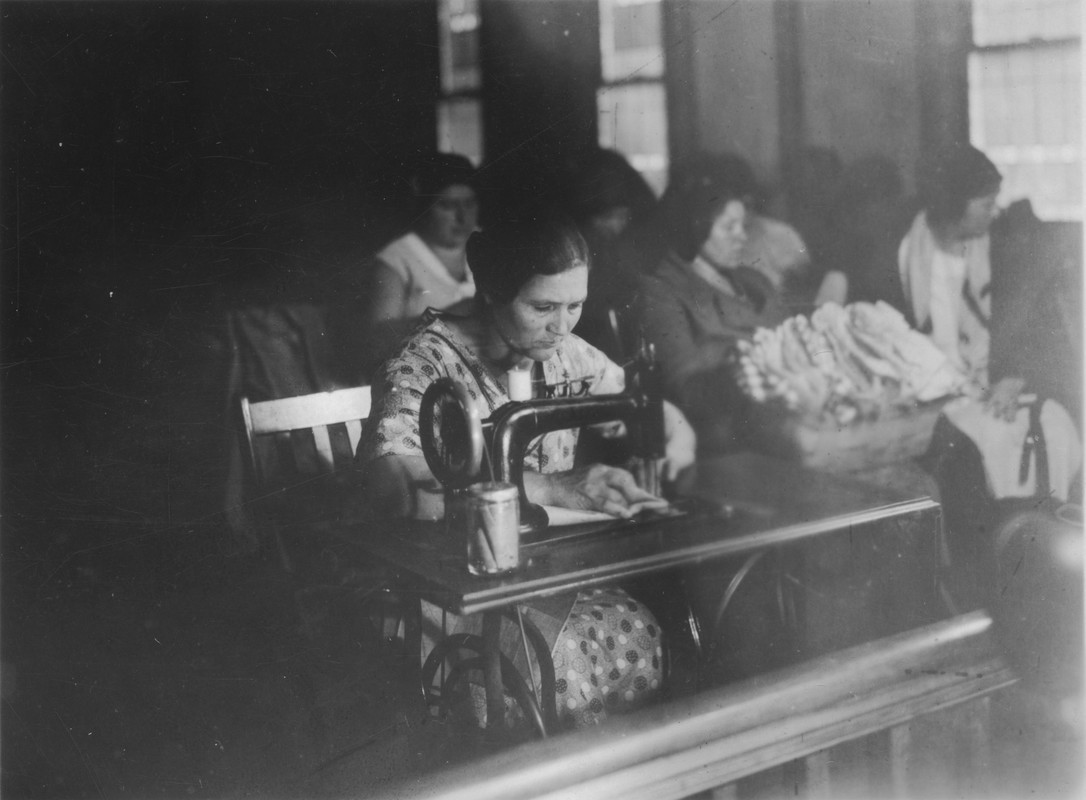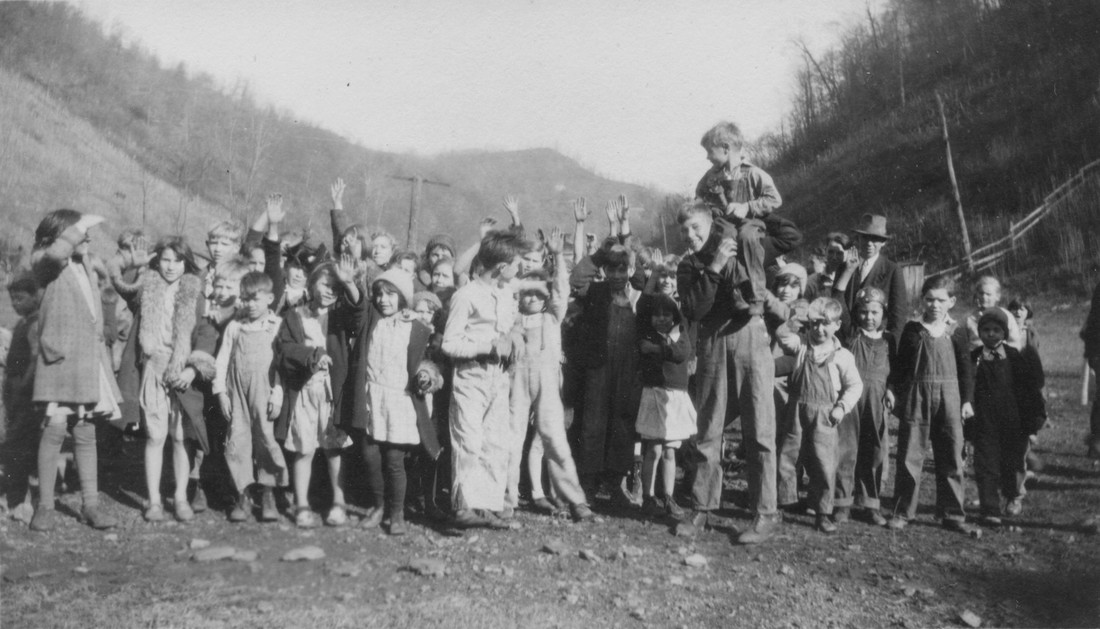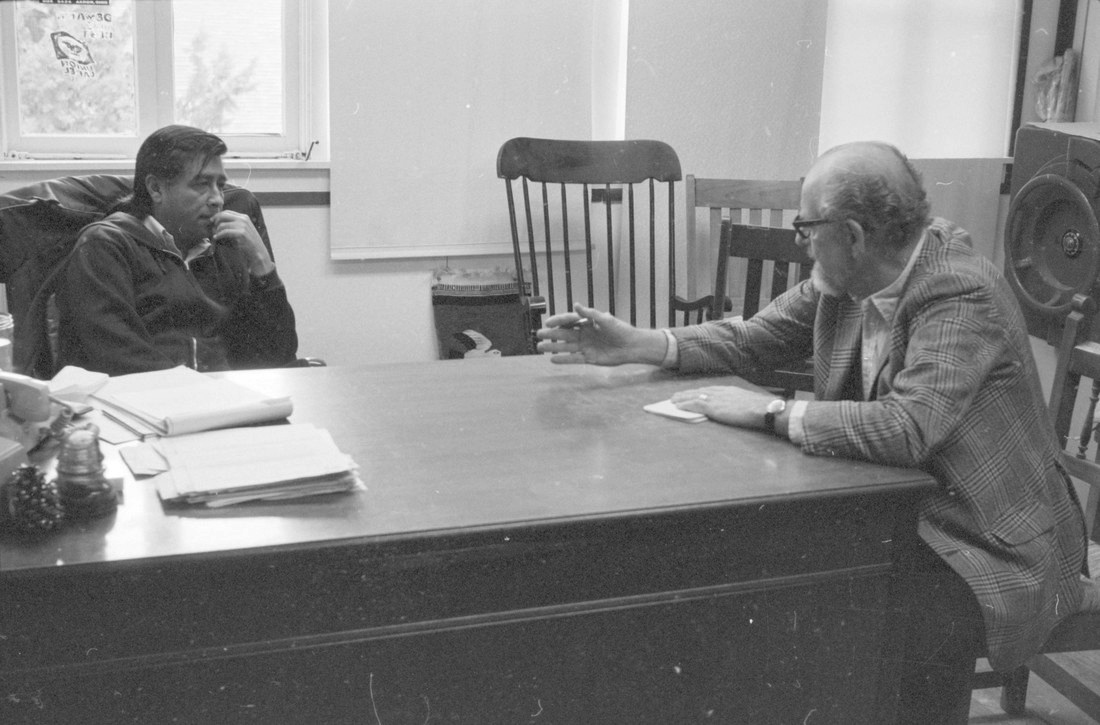
Participants in one of AFSC's West Virginia women's sewing groups. Photo: AFSC Archives
As a Quaker organization, AFSC recognizes the divine Light in all people. We work for a world where all people are treated with dignity and respect and have the resources they need to thrive. That includes the right to fair and safe employment, free from discrimination and abuse.
Throughout our history, AFSC has supported workers and labor organizations to uphold this right and demand economic justice for all. Here are four highlights from our efforts.
Supporting West Virginia coal miners
In the 1930s, the Great Depression and a sharp decline in demand for coal left thousands of miners unemployed. Workers—who had already struggled with dangerous labor conditions—now faced starvation and eviction from their homes.
AFSC, recognizing a looming humanitarian crisis, undertook relief work in Appalachian mining communities. Our efforts began with a program to feed around 400 children. In 1931, President Herbert Hoover asked AFSC to expand our work. Soon, AFSC was helping feed more than 22,000 children a day, influencing federal relief policies, and providing job training programs to unemployed coal miners and their families.

Photo: AFSC Archives
Beyond immediate relief, AFSC helped former miners and their families transition to futures without coal. We encouraged involvement in local crafts and handiwork, especially furniture making. We helped start a craftsmen cooperative and cooperative farms. And we encouraged community building, bringing women together for sewing groups, running spousal support groups, and calling for corporate accountability.
In recent decades, AFSC has continued to support West Virginia miners and other workers. That includes standing with steelworkers, grocery workers, teachers, and school service workers in strikes, lockouts, corporate bankruptcies, and policy struggles.
Today, AFSC continues to work in West Virginia as the West Virginia Economic Justice Project (WVEJ). WVEJ has successfully advocated for policy changes to increase coal mine safety and improve access to safety net programs, such as SNAP food assistance, Medicaid, and childcare subsidies.
Promoting equal opportunity for all workers
AFSC’s Job Opportunities projects, begun in 1952, worked to overcome employer discrimination and increase fair employment prospects for workers of color. AFSC staff worked with businesses and the heads of labor unions, encouraging non-discriminatory employment in cities across the U.S., from Chicago to Dallas.
As part of this work towards equal opportunities for all people, AFSC worked with U.S. labor leader and civil rights activist Tyree Scott. Tyree was a leader in the Central Contractors Association (CCA), an organization of workers of color that led peaceful demonstrations against discriminatory hiring practices in Seattle.
AFSC heard about these protests and approached Tyree and CCA to propose the creation of a new organization to work for fair hiring and employment. Thus, the United Construction Workers Association (UCWA) was born in 1970. With Tyree as director, UCWA’s work of community organization, peaceful demonstrations, and legal action against workplace discrimination achieved significant victories for workers.
In the years that followed, AFSC continued to honor the legacy of Tyree Scott through programs focused on supporting young people in working for racial and social justice.
Advocating for farmworkers
In the 1950s, AFSC joined with migrant farmworkers in California in advocating for basic services, such as access to water and safe, clean housing. This work grew into Proyecto Campesino, an AFSC program that accompanied farmworkers in advocating for themselves with growers and legislators.

Photo: AFSC Archives
AFSC also played a key role in establishing the United Farm Workers union. In the 1950s, labor leader Cesar Chavez worked as an organizer for AFSC’s Community Service Organization, eventually becoming its national director. He built on this experience to co-found the National Farm Workers Association (NFWA) with Dolores Huerta. The NFWA joined with the Agricultural Workers Organizing Committee in the historic Delano grape strike. The two groups eventually merged to form the United Farm Workers (UFW).
AFSC staff championed the UFW, providing meeting places and paying the salary of the union’s chief negotiator. Through grassroots organizing, consumer boycotts, marches, and hunger strikes, the union garnered national attention and support for farmworker rights.
In 1970, the striking workers reached a victory, resulting in not only a collective bargaining agreement that improved workers’ pay, health, and other benefits but also the landmark Agricultural Labor Relations Act. This law paved the way for labor reform across the country.
Improving employment for Appalachian women
In the late 1970s, AFSC began a women’s employment program in Southwestern Virginia. This program was called Women’s Work World (WWW). Through advocacy, organizing, and individual support, we sought to improve women’s employment and to change the systemic conditions that lead to poverty.
WWW helped thousands of women with job counseling and referrals, access to food and shelter, and advocacy and resources for women’s issues. The program focused on women’s employment prospects, but with the understanding that other facets of economic and social justice were just as vital. Led by local community members, WWW developed cooperative day cares, ran voter registration drives, and succeeded in getting a new domestic violence shelter established.
AFSC continues to work for economic justice for all people. From holding corporations accountable to defending people’s housing rights, we continue our work for a world where all can live in safety and peace with the resources they need to thrive.
